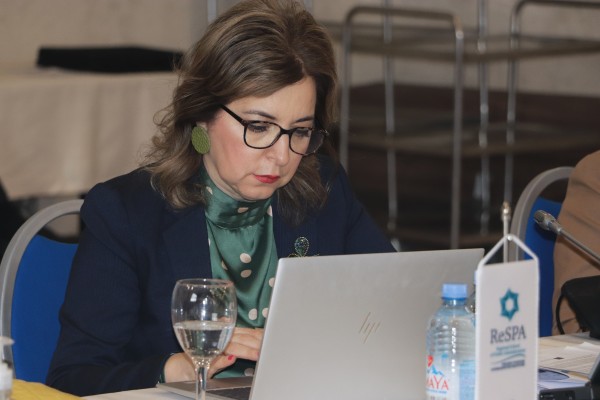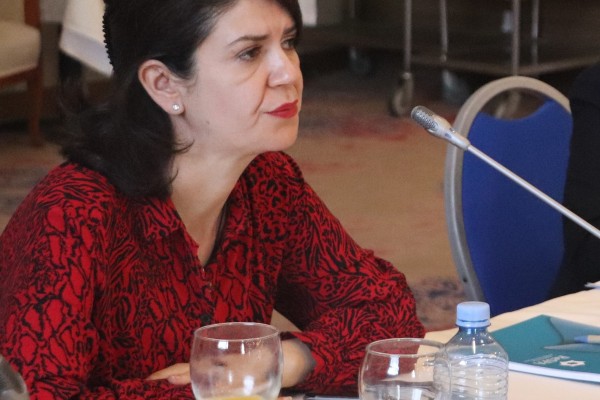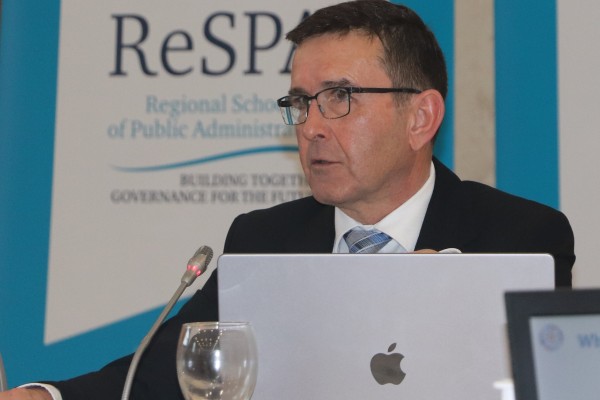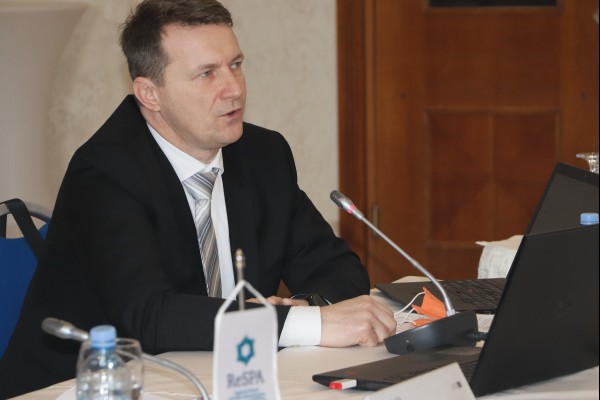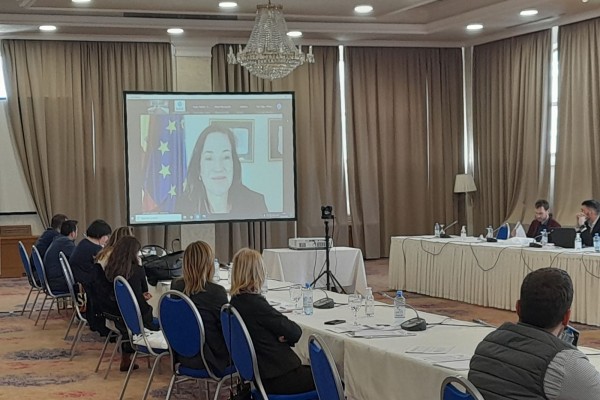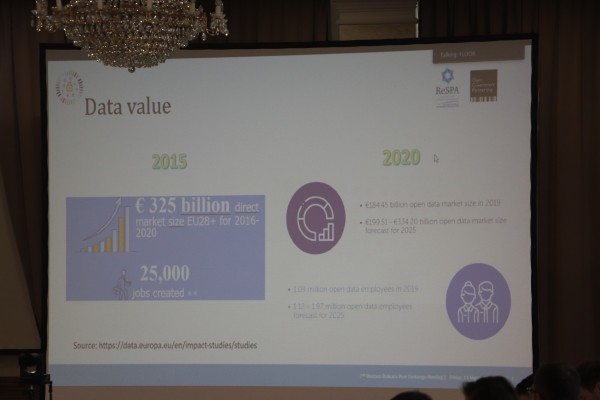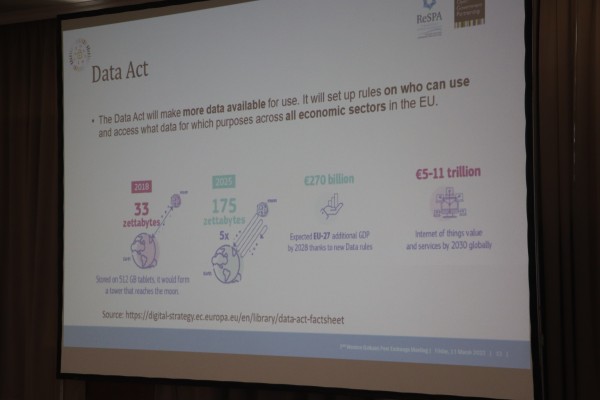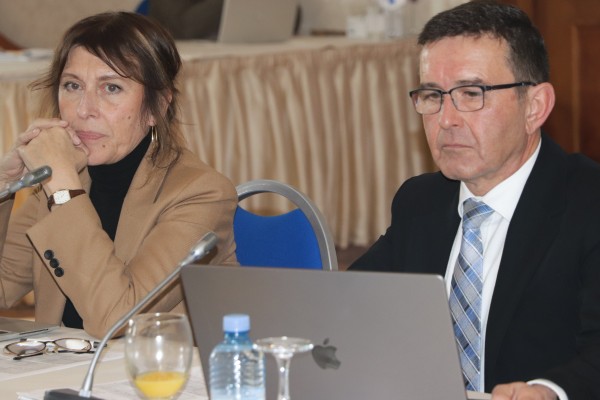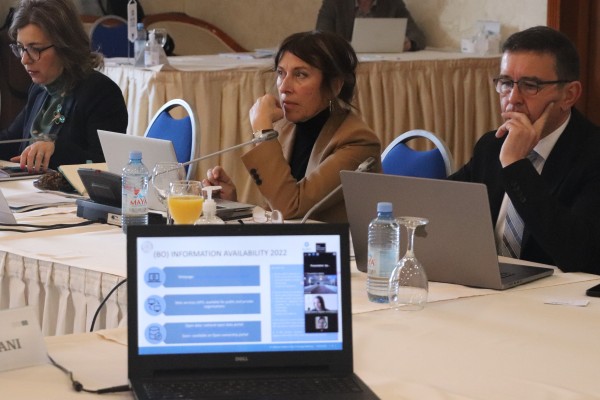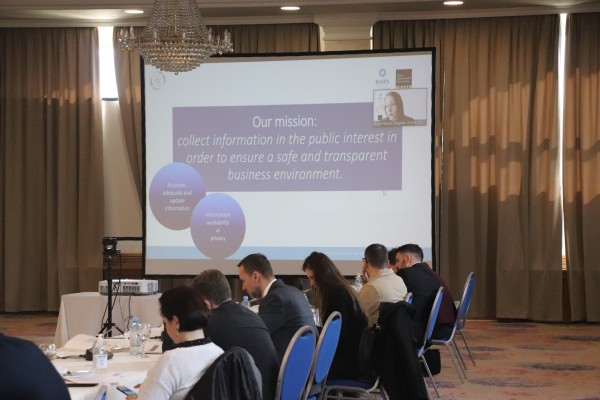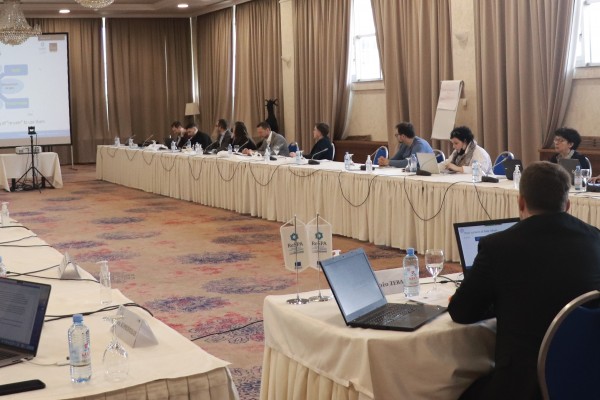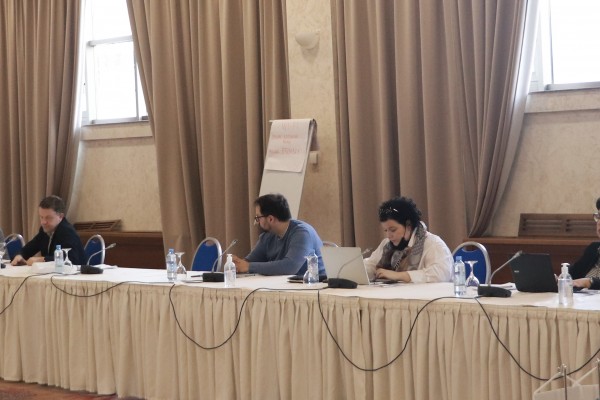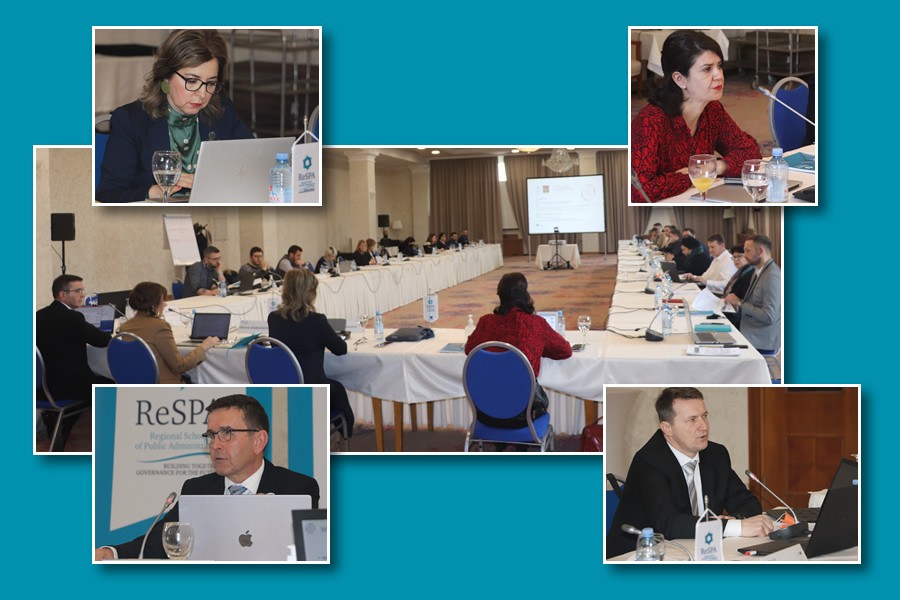
2nd Western Balkans Peer Exchange Meeting deepened the importance of establishing Open Data policies in making public administration more efficient and economical
Skopje, Republic of North Macedonia
Over the last several years, the Western Balkans governments have demonstrated an increased level of opening of governmental data. This trend will continue since the importance of data opening has been recognized. Either as the principle and consequence within the Open Government Partnership or as the recognized powerful tool to boost economies and increase social wellbeing, governments in the Western Balkans are investing more efforts in data opening by showing more commitments in developing policies and in improving the practice of data opening.
ReSPA and OGP gathered public officials dealing with opening governmental data to increase their knowledge about Open Data in the context of OGP and within the digitalization of public services to better cope with establishing workable Open Data policies and improve the managing of Open Data portals. Prominent experts from the Western Balkans and EU presented the main elements of the EU Directive on Open Data, the best practices from Slovenia and Croatia in creating an Open Data ecosystem, assessment, and measurement tools developed in this area. They reviewed the requirements and ITC solutions for data opening so that public officials can better cope with establishing workable Open Data policies and better address challenges in operating and managing Open Data portals.
Ms Ratka Sekulović, ReSPA Director, highlighted that ReSPA, as an innovative regional hub, over the last ten years has been focusing, among other issues, on supporting WB countries in opening data where collaboration with the Open Government Partnership is vital.
Ms Sandra Pernar, Senior Regional Coordinator Europe in OGP Support Unit, mentioned that OGP brought a new communication model between civil society and government to create cross–country learning space and highlighted that special attention is given to independent monitoring track national Action plans. Pernar also presented several successful examples where citizens used data for a different purpose. "Citizens need to become aware that they have the power to change and develop societies by using the Open Data. Every citizen can be a change agent, but they need data, whether it is corruption, health issues or some other topics they are interested in," highlighted Pernar.
Olivera Damjanović, ReSPA Programme Manager, said that besides contributing to the reformative processes in the WB public administrations, OD could boost the economy by creating a better investment climate and increasing the quantity of job posts. She has emphasized that ReSPA is and will continue to assist WB public administrations in improving policies and practices in opening governmental data.
Good experience from Italy, Latvia and Slovenia, accompanied with the overview of the OD policies in the Western Balkans, were topics tackled during the first day of the Meeting
OGP experts Joseph Foeti and Helen Darbshire paid great attention to the importance of more purposeful usage of Open Data in increasing governments' legitimacy. They also noticed that it isn't easy to define what data are useful for the public, so governments should ask citizens what is relevant to them and plan to re-use Open Data. Open Data mustn't be misunderstood or misused – the citizens (civil society, journalists, academics, businesses) have the right to accurate information and be able to use, repackage/re-use them to create jobs, make money or make important changes. They advised the civic servants dealing with Open Data to promote opening data and have feedback on how Opened Data is meaningful for others.
Guna Paidere, Director General of the Register of Enterprises of the Republic of Latvia, highlighted the importance of Open Data both for civil society and businesses and pointed out that governments need to understand the needs/problems of society. She presented practical tools for the Open Data for different purposes (for Agriculture, Climate action, Anticorruption, Land Governance, etc.) and noticed the importance of communication with the local OD experts and the local community, interoperability of data and people, having constant feedback mechanism and monitoring progress.
OGP Experts Gianmarco Guazzo and Simona De Luca presented the Open Coesione – multisectoral project in Italy that supports citizens and businesses to monitor the development and implementation of policies for equal distribution of funding opportunities in Italy through Open Data and better collaboration on specific initiatives that aims at reducing disparities.
Mr Driart Elshani, ReSPA Expert, provided a comprehensive review of OD policies in the Western Balkans and of main provisions of the EU Open Data Directive from 2019, contributing to the discussion of participants who updated each other on novelties in OD within WB countries.
Mr Boris Koprivnikar, ReSPA Expert, gave an excellent overview of EU guidelines and presented the experience from the EU, of the successful creation of the Open Data ecosystem in Slovenia. He provided numerous practical advice on two layers of data opening (legal and technical) to participants on where to put the focus when opening governmental data and how to improve the interoperability framework for Open Data. In that process, "ReSPA's role in awareness-raising of the Open Data importance at the highest level in the WB countries is crucial. Also, allowing the regional level in sharing experiences is crucial", concluded Koprivnikar.
The Open Data Landscape: Concepts, Methods, Tools and experiences sharing
Mr Božo Zeba, Central Office for Development of Digital Society of the Republic of Croatia, presented Croatian experience in opening data and provided a comprehensive view of the EU Open Data assessment tool and OD Landscaping. In Croatia, "the biggest issue in OD are features that measure the quality of metadata. This tool pushes public administration to describe data in a precise and useful way to use the data". He also dived deep into a methodology for assessing the impact of open dates (ex-ante and ex-post). Finally, Mr Zeba provided many practical suggestions to the participants, among others, to "think about presenting the benefits of the Open Data to politicians to foster their political influence throughout OD and to raise awareness of the OD at the highest level". Mr Zeba said that Policies for the OD are mostly covered in the Western Balkans. Still, the portals are not in line with the EU, and they need to be improved by the features (metadata and data).
Ms Nataša Veljković, ReSPA Expert, presented OD APIs and good examples of data structure and metadata information/ assessment of open government data portals by giving a brief overview of Open Data API portals in ReSPA Members and OpenGov benchmark - BDS and DOI.
Four dimensions of Open data portals (users experience, data provision, portal usage and sustainability) were in the focus of the presentation of Mr Aleš Veršič, ReSPA Expert. Mr Veršič provided the newest information about good practice in the EU, Republic of Slovenia. Mr Veršič highlighted that OD is the heart of the ecosystem and opening data is a marathon, not a sprint that most count on a small group of enthusiasts. Among many practical suggestions to participants, Veršič mentioned that public institutions, as a part of the tendering procedure, should request applicants to re-use data in applying the tender.
Cross bordering of Open Data as trajectory line for the Western Balkans in the opening data
At the panel discussion, public officials from ReSPA Members Andreja Gluščević, Dragana Brajović, Ružica Mišković, Marija Janković, Nadica Josifovski and Sabahudin Suljević presented main issues in data opening in their respective countries. They shared common challenges that are met in practice. With a great level of consent, participants suggested that a few common issues for all public administrations could be chosen and addressed by ReSPA in the regional project or initiative frame, such as standardization of metadata in the region, raising awareness about the importance and benefits of data opening.
ReSPA continues to foster transparent, less corruptive and more efficient WB public administrations in the region
ReSPA will continue organizing regional events that would focus on OGP and improving the policies and practices in opening governmental data.
Under the e-Gov thematic area, and by organizing this kind of joint event with OGP, ReSPA is committed n building the capacities of public officials dealing with accountability, transparency and data opening.



